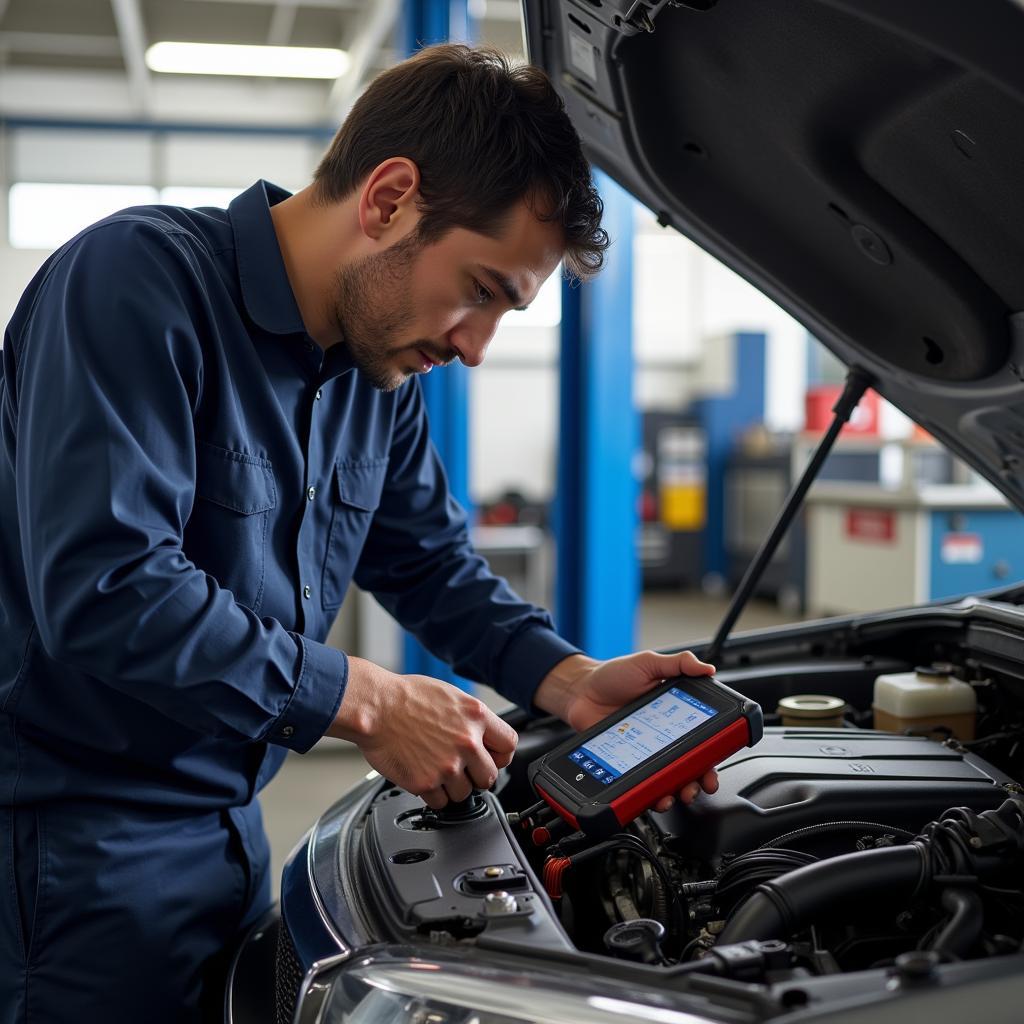Navigating the world of car repairs and maintenance can be daunting. Whether it’s an unexpected breakdown or routine servicing, finding reliable “Auto Service Help” can be a stressful experience. This comprehensive guide is designed to equip you with the knowledge and resources needed to make informed decisions about your vehicle’s care.
Understanding Your Auto Service Needs
Before seeking professional help, it’s essential to have a basic understanding of your car’s needs. Familiarize yourself with your owner’s manual, paying attention to the recommended service intervals and common warning signs.
Types of Auto Service Providers
From independent mechanics to dealerships and specialized repair shops, a range of options exist. Each type of provider comes with its own advantages and disadvantages:
- Dealerships: Offer specialized expertise for your specific car make and model, often using original equipment manufacturer (OEM) parts. However, they tend to be more expensive.
- Independent Mechanics: May offer more competitive pricing and personalized service. It’s crucial to find a reputable mechanic with proven experience.
- Specialized Repair Shops: Cater to specific needs like transmission repair, bodywork, or tire services. Choose shops with certified technicians and positive customer reviews.
Evaluating Auto Service Quality
When choosing an auto service provider, several factors are key:
- Certifications and Licenses: Look for certifications like ASE (Automotive Service Excellence) which indicate a mechanic’s competency.
- Customer Reviews: Websites and online platforms provide valuable insights into other customer experiences.
- Transparency and Communication: A trustworthy provider will clearly explain the repairs needed, provide a detailed estimate, and answer your questions patiently.
Common Auto Service Needs and Costs
Understanding common auto services and their average costs can help you budget effectively and avoid surprises:
- Oil Change: Regular oil changes are crucial for engine health. Expect to pay between $35 to $75 depending on the oil type and your vehicle model.
- Brake Repair: Costs can range from $150 for basic brake pad replacement to over $1,000 for complex repairs involving calipers or rotors.
- Battery Replacement: Car battery replacement typically costs between $100 and $300 depending on the battery type and labor charges.
- Tire Rotation and Replacement: Tire rotations are essential for even wear and tear, costing around $15 to $45. Tire replacements vary greatly in price based on the brand, size, and type of tire.
It’s crucial to note that these are just average estimates and actual costs may vary based on your location, the specific service provider, and the year, make, and model of your vehicle.
 Mechanic Performing Routine Vehicle Check-up
Mechanic Performing Routine Vehicle Check-up
Empowering Yourself With Knowledge
Knowledge is power when it comes to auto service. Utilize online resources, consult reputable automotive forums, and don’t hesitate to ask questions. Building a basic understanding of car maintenance can save you time, money, and stress in the long run.
Conclusion
Finding reliable “auto service help” doesn’t have to be an overwhelming task. By understanding your car’s needs, evaluating service providers carefully, and staying informed, you can ensure your vehicle receives the best possible care. Remember, proactive maintenance and informed decision-making are key to a safe and enjoyable driving experience.
